What’s the Difference?
If we were to insert the Burger King logo here and challenge you to identify it, you’d probably think we’ve gone mad. Now if we were to challenge you to draw the Burger King logo right now onto a blank paper, you’d probably think you’ve gone mad because you wouldn’t be able to do it correctly. The sweet, sweet difference of recognition versus recall.
Recognition is the acknowledgement that you have seen or learnt a concept before. It is re-reading your notes and thinking to yourself ‘yup, that makes sense’. This is a common trap that a lot of students fall into as it gives them a false sense of knowledge, then they can’t bring up any of that knowledge on-demand during the exam.
Recognition study methods require less effort, which is part of what makes their efficiency so limited since it’s not challenging your brain. Some less efficient study methods include things like:
- Re-reading or re-writing notes
- Highlighting large chunks of info
- Watching videos

Recall, on the other hand, is digging deep into the brain and pulling up specific knowledge without any prompts. The harder something is to recall, the easier it will be in the future- no pain, no gain, right? Recall is more like looking at a question and generating the answer from memory alone. Most of the exams you will sit in NCEA will require recall rather than recognition so it’s important to learn how to recall.
Recall Methods
Remember there is no need to reinvent the wheel- popular study systems are popular for a reason. We’ve collated some of the most efficient and effective methods for you to try out this coming exam season, so what have you got to lose?
Flashcards
Are you aware you could be making and using your flashcards wrong? Well maybe not wrong, but rather not to their full potential. Flashcards are highly effective when done correctly as they prompt us to bring up knowledge from the depth of our brain and really show us whether we do or don’t know something. In saying this, it is important that you don’t over-rely on them because it’s highly likely your testing will not be a series of unrelated factual questions. The information in flashcards all links together to form bigger ideas and concepts which you will also need to be aware of, so don’t sell your soul to the flashcard gods.
We’ve collated the best tips and tricks for setting up the flashiest flashcards which you can apply to any new decks you make, or use to fix up any you already use.
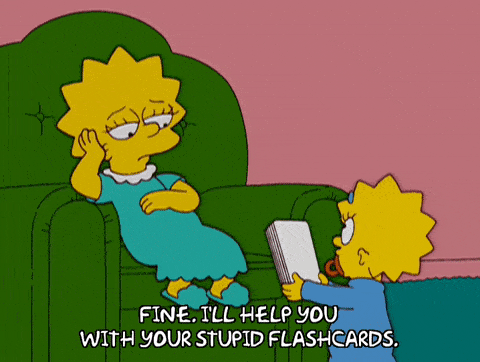
Pen & Paper vs Digital
There are countless ways in this day and age to make and use flashcards, all with their own pros and cons. Here are a few popular options and why they may or may not suit you.
Physical flashcards
Writing out information has been proven to improve knowledge retention so even the first step of making these cards will be a step in the right direction. Another pro for this is that there is no need for a device (could be good if your school isn’t into huge technology use).
The main cons are having to carry around the physical cards with you which can get quite bulky, plus you have to remember to pack them in the first place. Maybe skip this option if you’re prone to leaving your pencil case at home 3 days a week…

Quizlet
Quizlet is a popular online flashcard website. Most of the features are free to use, there’s an app available that can sync across all your devices and there are different study options for testing, including a groovy minigame. Digital platforms make it easy to store as many flashcards as you like and organise them to your heart’s content. You will also never leave these behind anywhere and can share your deck with friends if you’re into being the best friend ever.
Anki
Anki is another great digital flashcard platform. The unique thing about it is that it’s smart enough to space your repetitions for you. Getting a card correct will automatically mean you will see it less, and getting it wrong will make it pop up more often.
Anki trumps other online methods with its ability to incorporate images, audio and videos straight into the flashcards. There are a whole bunch of add-ons you can download for Anki to make your flashcards look and do basically anything you desire. It’s a little more complicated to use due to all these cool features, but watch a few demo videos on YouTube and you’ll be well on your way.

Making Flashcards
- Keep the cards simple
Use one piece of information per card.
- Use images
Utilising images (and graphs) saves time making cards, makes questions easier to understand and is very helpful if you will have images in your exam that you will need to identify (e.g. physics diagrams).

- Make your own
Making flashcards yourself (rather than using ones made by friends or found on the internet) is another learning hack. It makes you reread your notes and transform the information into compact pieces to go on each flashcard. It also means you will know what type of answers are expected for specific questions, saving you time when using the cards.
Using Flashcards
- Leitner box method
This method is based on sorting your flashcards into different piles. Start with them all in box one, and when you get it correct move it to box two. Every correct answer gets moved up a box and every incorrect one, down a box. The different boxes represent how often you study that set of flashcards- something like Box 1: daily, Box 2: every second day, Box 3: weekly, etc. This will force you to practise the difficult cards more and make you more proficient at them.
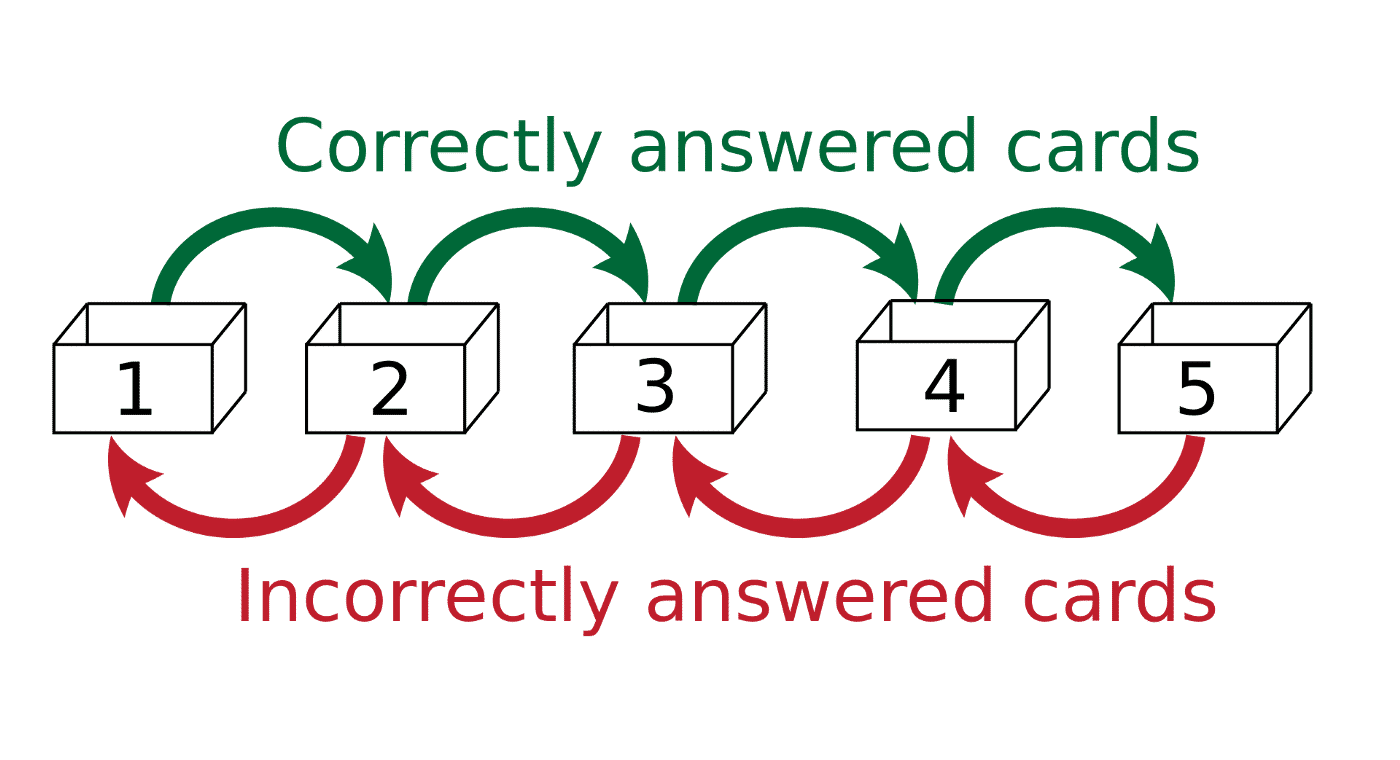
- Test both ways
Try setting up your cards so that you can use them both ways going from word → definition as well as definition → word. This might be hard at first but will help strengthen those recall pathways in the brain even further.
- Set reminders
If you’re afraid you’ll never touch your flashcards again after you make them, set flashcard reminders. These can be notifications on your phone for specific times of the day, or you can just incorporate flashcard sessions into the daily activities you already do. Brushing your teeth, bussing to school, before you shower, after you eat dinner. These sessions don’t need to take hours- even a few cards here and there will add up to make a big difference.

Become the Teacher
“If you can’t explain it to a six-year-old, you don’t understand it yourself.” ― Albert Einstein
Another great way to test your true understanding of a concept is to teach what you’ve learned to someone else, ideally someone with no prior knowledge of the concept (or even a dog or teddy bear if no one is around). Don’t use notes and explain it just like you were teaching a real lesson with diagrams and definitions, the whole shebang. Look at the concept from all angles and challenge yourself to answer the ‘what, when, where, why, how’ questions where applicable. If you do have a person listening to all this, invite them to ask questions at any points that aren’t clear or simple enough to understand.

This method forces you to break down the content right down to the smallest pieces and build it back up piece by piece. It’s going to be really hard at first but will quickly uncover gaps in your knowledge where you can’t quite remember what comes next or are stuck answering a question from the ‘student’.
After the ‘lesson’, pull your notes back out and revisit the bits you got stuck on. Work at refining your ‘lesson’ and making things even simpler, and then have another go. Teach and reteach until you can answer all the questions and explain all the concepts with confidence and you’ll suddenly find the knowledge is ingrained in your memory.
Practise Under Exam Conditions
Although completing practise exams while glancing at your open notes may make you feel like you’re acing the paper, it is unlikely to go that way once the notes disappear. Remember, recall methods work because they strain your brain to dig out the knowledge with no cues for assistance.
Shut your books, put your phone away, open the exam paper and pretend it’s the real deal. The first time might be tough, but use it as a guide to what bits you need more study on. The more you practise this way, the better your brain will get at pulling out that information and it’ll be second nature by the time you sit the real exam.
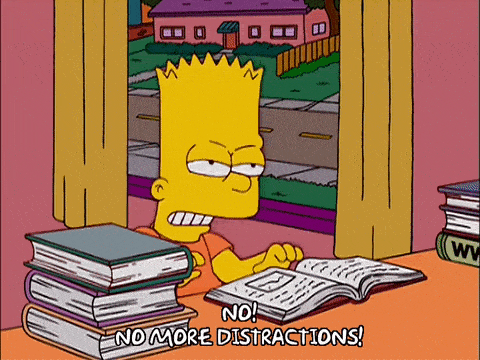
Start NOW
Exams might be a faraway la la land at this current moment, but they will come around fast. We promise your future self will thank you for starting these routines early.
Be Realistic
You can tell yourself you’ll make flashcards for ALL your externals during the study break before exams, but trust us, you won’t. Making flashcards is time-consuming, tedious and boring if you have 1000’s to make in one sitting. You also won’t complete ALL the past papers for five different exams during this time either, no matter how slick your study schedule is.

Building these recall strategies is best done through small increments. Transfer your notes to flashcards the evening straight after learning a new concept (ideally), or in a small stint at the end of each week for that week’s content. These frequent but small workloads will prevent burning out and also mean that come exam time, all you need to do is whip out the flashcards and get studying.
Spaced Repetition
If the first time you dust off the flashcards is two days before your exam, you will unfortunately not reap any of the benefits. Recall methods all work best when done multiple times with time between. Spacing this repetition works well because every time you access a piece of knowledge, the slower you will forget it each time.
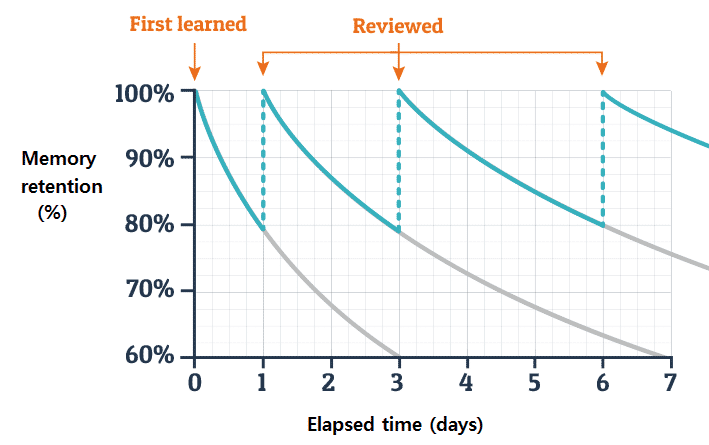
These optimal spacing intervals will depend on how much time you have until the said test and how much you have to learn. Have a quick Google of spaced repetition and pick a timetable that looks like it will work for you.
Track Your Progress
Sometimes it’s hard to realise just how far we’ve come but it can be the exact motivation we need to push through that final stretch. From when you first begin these methods, track your progress with things like how many flashcards you got correct, how sure you were of the answers or how many practise exam questions you got correct. These might rise slowly but comparing back to day one will show you just how much progress you have made through these tiny changes.

Final thoughts
Whichever of these methods you decide to try out, remember Rome wasn’t built in a day. Practising flashcards once, teaching a concept once or completing one practice paper without notes won’t miraculously bump your grades. Like we’ve stressed through this whole article, recall methods strengthen your brain connections by refreshing them over extended periods of time. Adapt the techniques to suit your subject and personal learning style, then create a timetable and let the methods work their magic. It is all backed up by science, after all.
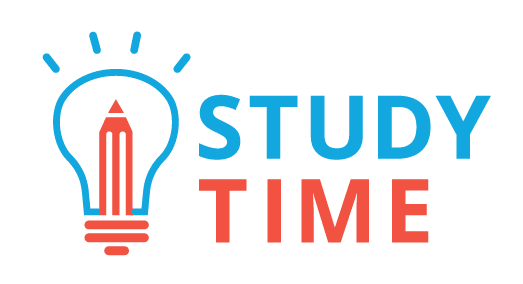
0 Comments